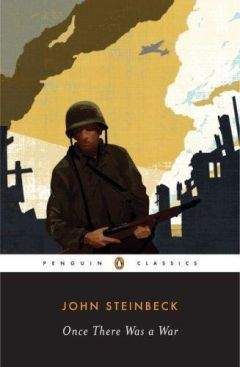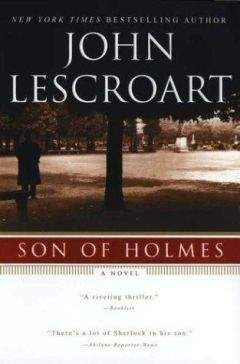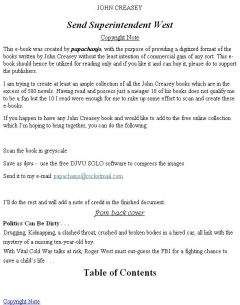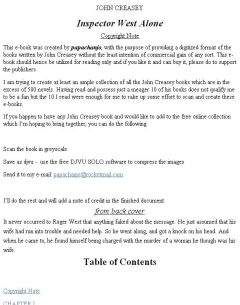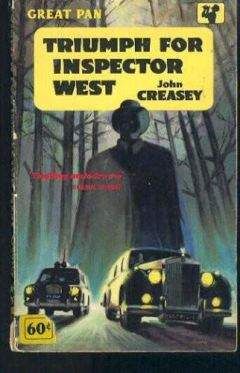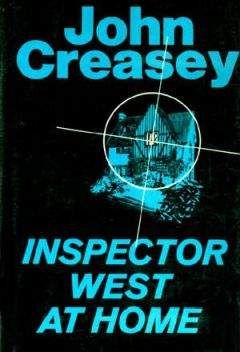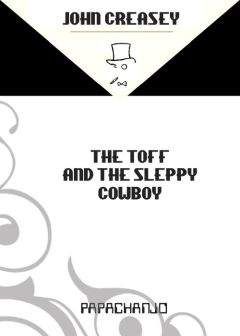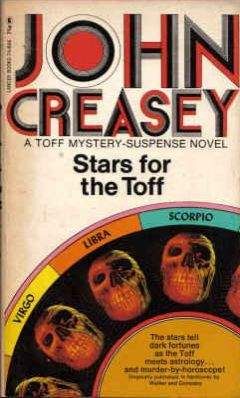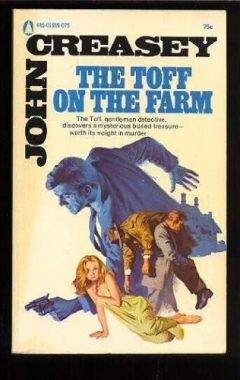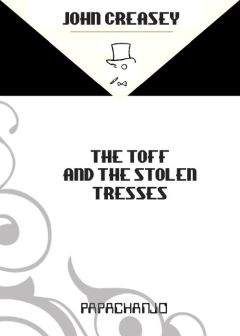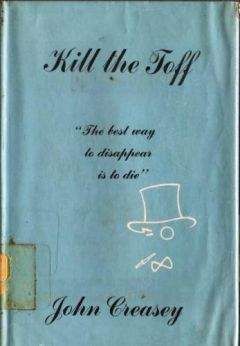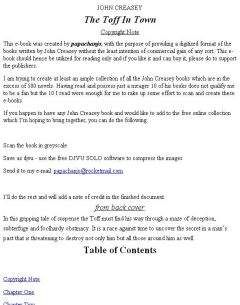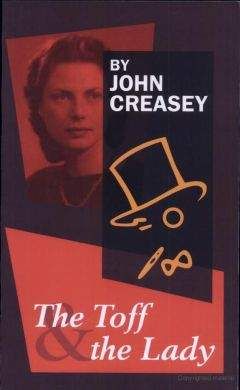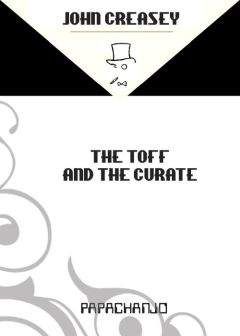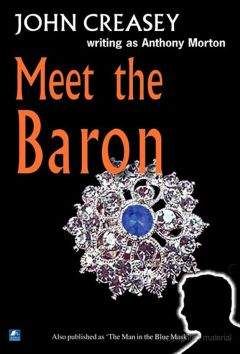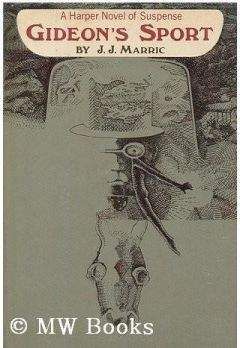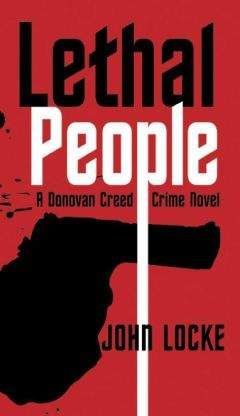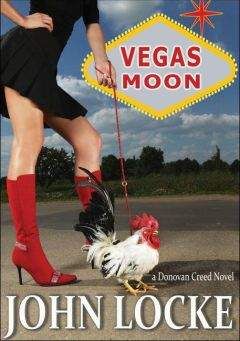John Creasey - Alibi
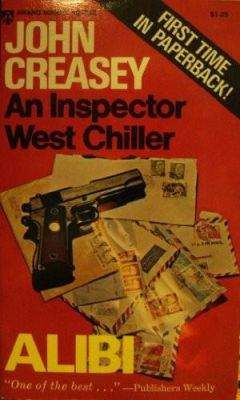
Скачивание начинается... Если скачивание не началось автоматически, пожалуйста нажмите на эту ссылку.
Жалоба
Напишите нам, и мы в срочном порядке примем меры.
Описание книги "Alibi"
Описание и краткое содержание "Alibi" читать бесплатно онлайн.
“That’s good,” said Roger. “I didn’t quite mean what I said.”
Martin smiled with surprisingly evident relief.
“That’s good too!”
“Where do you plan to go?” inquired Roger, choosing “plan” deliberately, thinking it would help to reassure Scoop that there would be no opposition to overcome with him. But it was already evident why he had wanted this talk alone, for Janet would hate the idea of emigration.
“Australia,” Scoop answered promptly.
“I suppose that’s as good as any and no doubt better than most,” remarked Roger.
He ate in silence for a few moments, and so did Martin, whose hunger was getting the better of him. He, Roger, was in fact feeling a delayed shock effect. He had known for years that Martin wasn’t too happy in England, that life hadn’t gone too well for him, but he had seen this in terms of getting a better job, or having a breakthrough with his painting. Scoop spent every moment of his spare time with brush and easel.
“Really not shocked?” Martin asked after a while.
“No, Scoop. Not shocked, but I think Mummy will be.”
“Didn’t I know it!” Scoop could hardly have sounded more rueful.
“How long has it been since you made up your mind?”
“Oh, about a month,” Scoop told him, then coloured and went on with a rush, “I wanted to be absolutely sure before I said anything, so I’ve been along to Australia House, and seen the New South Wales people and made an application for an assisted passage—it only costs ten pounds. Did you know?”
“Yes,” said Roger, and added rather heavily, “so you’ve gone as far as that?”
Scoop nodded, without saying a word.
“Decided what ship yet?” asked Roger.
“The Northern Star,” answered Scoop. “It’s due to sail on June 28th.” He picked up his fork only to put it down again, almost awkwardly. “Dad, I—I had to go ahead. I knew if I talked to you you’d have to tell Mummy, you wouldn’t keep that kind of secret from her, and if Mummy had known she would have worked on you—well, on me too—to dissuade me. And—and well, I thought if everything was cut and dried then there couldn’t be so much arguement—er—discussion, I mean, and perhaps it wouldn’t hurt so much.”
Roger looked at him steadily; and looking, he saw the tears close to the boy’s eyes, a boy of twenty-one, a young man, so fearful of hurting that he had felt constrained to keep this tremendous yearning to himself. He felt a great warmth of feeling towards and a compelling need to reassure him and yet he did not quite know what to say.
He was still undecided when the telephone rang. Martin’s brow furrowed and he muttered, “Oh, damn!”
Chapter Five
OFFER
The last thing Roger wanted at that moment was a summons to the Yard, and Martin’s muttered imprecation told him how his son felt. He pushed his chair back, and for some reason was more aware of the shock of the boy’s news than he had been earlier. Before he was on his feet, Martin was up and halfway to the extension just in the passage by the kitchen door.
“I’ll get it,” he said.
Roger watched and listened. The boy’s voice was deep and pleasing, his manner nearly always the same: gentle and kindly. He was broad-shouldered and very powerful but the gentleness always hovered in his experience, in his grey eyes, in the way he handled animals and tools.
Now he said, “This is Martin West . . . Yes, I think so . . . Who wants him, please? . . . If you’ll just hold on, I’ll see . . . Are you from Scotland Yard? . . . Oh, thank you . . . .” He appeared in the doorway, obviously surprised, looking ten years younger than his twenty-one. “It’s a Mr. Benjamin Artemeus,” he reported, “and he would like to have a word with you. He’s not from the Yard.”
“Then I’d better speak to him,” Roger said, and as he passed Martin he added quietly, “I won’t go out until we’re through.” He reached the telephone and announced, “Roger West speaking.”
“Mr. West,” began a man in a very pleasing voice, continuing without preamble, “I would very much like to meet you and discuss a proposition which I think will interest you.”
It was a suspicious kind of opening and Roger became very wary indeed. He even ran through his mind the cases he was handling or involved in at the Yard; attempts to bribe often began in this way.
“What kind of proposition?” he enquired.
“It is wholly legal,” Artemeus declared, with an unmistakable hint of laughter in his voice. “Are you free for lunch tomorrow? I hope you are. I can make an offer which may be of great interest to you. And do let me repeat that it is wholly legal and for the time being, strictly confidential.”
“I’m not free for lunch on any such flimsy basis,” Roger said bluntly. “What is this all about?”
There was a long pause, before the other man answered in an equally direct way, “A position for you whenever you retire from the Metropolitan Police, Mr. West. I cannot discuss it over the telephone but it would be most advantageous to you. I feel sure you would be ill-advised not to discuss it.”
“What gives you the idea that I might retire?” asked Roger sharply.
“Oh, come. You’re bound to retire sooner or later. The offer I can make may persuade you to do so early rather than late, but there will be no attempt to bring any pressure to bear on you. I—ah—would know better than to attempt such a manoeuvre with such a man.”
Roger was turning the whole thing over in his mind, very quickly.
He was free tomorrow, as far as he knew, and one day he would begin to think about retirement. Not yet, but one day, and many more conflicts with Coppell might make it sooner. Every senior policeman began to think, after a while, about his future; a pension would give a sufficiency but no luxury.
“I am free tomorrow, at the moment,” he said at last. “But an urgent job might crop up and prevent me from keeping an appointment.”
“That is quite understood,” said Artemeus. “Tomorrow at twelve-thirty, shall we say. At the Savoy Grill? . . . Excellent . . . I shall know you on sight, Mr. West, so I needn’t give you any description of me. Good-night.”
He rang off, almost as if he wanted to avoid giving Roger time to change his mind. Roger rang off more slowly, repeating to himself several times, “Twelve-thirty, Savoy Grill.” He sauntered back to the kitchen. Martin, finishing the chips, got up and took a big deep-dish apple- pie from the oven and placed it in front of Roger.
“Cream coming up . . . Mum made this, it’s gorgeous. Coffee?”
“Yes, please.”
Martin made instant coffee with water so hot that the powder fizzed and bubbled. Then he sat down again and grinned as broadly.
“Someone trying to bribe you, Pop?”
“Let them try,” said Roger, offhandedly. “Now, where were we?” He poured thick cream over the pie, and out of the blue was reminded of Hamish Campbell. Pushing the thought aside, he went on, “So you’re really set on going to Australia?”
“I—I’m afraid I am,” Martin confirmed, with apologetic stubbornness.
“Can you tell me why?”
The boy hesitated, as he so often did, then answered very quietly, “I haven’t made much of a fist here at home, Dad. I don’t blame conditions or—or taxes, or the way the country’s run, I just—well, I just don’t seem to fit in. There are a hundred reasons, really, but most of all I — er—well I—er—I would like to make a fresh start in a new country with new ideas. I just” —he was speaking with great deliberation and yet almost stammered—” I just can’t sit around here in England, with nothing really to look forward to, and—let’s face it, Dad—not much hope of getting anywhere with my painting. I love England but it is tradition-bound, isn’t it?”
“Are you sure Australia won’t be?” asked Roger.
“Obviously I can’t be sure but I don’t think it will be in the same way,” Martin said. “And it is British. I mean, it’s in the Commonwealth, it’s not like going to an entirely foreign country, is it?”
“You mean, it doesn’t make you feel you’re deserting England?” Roger put his spoon down and looked very straightly into his son’s eyes. Martin seemed more than a little uncomfortable.
“I suppose that’s what I do mean,” he admitted at last. Then with a burst of honesty which was characteristic of him, he went on, “It’s the only thing that’s held me back, Dad. That you’d feel I was deserting Britain.” Then he went on with a kind of reluctant stubbornness, “I don’t honestly think I can do much to help England, but I’d hate to feel I was letting you down—or I’d hate to feel you thought so.”
Obviously he was crying out for reassurance: but knowing him, Roger was sure that he would not want any comment which sounded remotely glib. In any case, Roger wanted to learn more of what was in his mind.
“What about your mother?” he asked quietly.
“She’s different,” Martin replied.
“How different?”
“I know it’s bound to hurt her,” replied Martin, “but no more than it would hurt any mother when her son finally leaves home. In a funny way it might hurt her less than if I were to get married. She—” He broke off, floundering, then went on almost grimly: “Her reaction will be personal and emotional. Yours—well, yours will be emotional too, of course, but not in the same way. You’re such a passionate Englishman, Dad.”
“I am!” gasped Roger.
“Gosh, yes! English standards of behaviour, English democracy, integrity, honesty—you believe in all these things so much. You’re always saying that we have to stand and fight back, that we’ve lost so many of these standards but ought to try to regain them. Surely you know that?”
Roger drew in a deep breath.
He did know it, of course; he knew how bitterly disappointed he often was with the state of England, the standard of behaviour, the way the numbers of crimes committed had shot up, more than doubling themselves since he had joined the Force. But he hadn’t realised that he had talked forcefully of these things so often that they had registered so much on his son. Watching the boy, whose face was set in unmistakable determination, he reminded himself sharply that this was Martin’s problem, not his; that he had only one consideration: to help, reassure and even strengthen the lad’s certainty.
So he smiled, and with a rare gesture leaned across the table and pressed his son’s hand.
“Things were very much the same between the two wars,” he remarked. “Before I met your mother and joined the police I was very tempted to go overseas. I think I would have chosen Canada or the United States.” He pressed Martin’s hand again, and went on, “In every generation there are those who are driven by some inner compulsion to emigrate. It’s a form of pioneering, and it’s very deep in the British, in fact in most Europeans. I would say there is only one thing that should stop you.”
Martin stiffened.
“What’s that?”
“If you feel you are running away or deserting your country. If you yourself felt like that you would probably always have it on your mind and it would reduce your chances of settling down, being contented, and doing well. Do you ever feel even remotely like that?”
Martin’s gaze was very steady, and he took his time replying. At last he answered.
“No, father, I don’t. I don’t think I’ve anything to offer here. I really don’t. If I think anything I feel—oh, gosh, it sounds so corny, but I feel a responsibility to people, not to places, not even to my own people. Just people. And I can fulfil that wherever I am.”
“There’s no doubt about that,” agreed Roger. “Answer me one question.”
“Yes, of course.”
“Has anything driven you away from home? From your mother and me?”
“Good God, no!” Martin was aghast. “Absolutely no.” He hesitated for a while before going on in a different tone, “I feel in a way I’ve failed you. I simply can’t stay here and sponge on you. I just have to make my own way independently. It’s something in me, nothing to do with you or mother or Fish. I just have to go.”
Roger pushed his chair back, rounded the table, and put his arm about his son’s shoulder. He felt the strength of muscle, the solidity, very much like his own. He stood like that, searching for the exact words to convey his feelings; it had never been so important that he should say exactly the right thing.
At last, he said, “When you’re gone, Scoop, I shall miss you; miss you terribly. But I shall envy you, too, and admire you because you had the courage I lacked when I was your age.”
He stopped.
He wondered: was that the right note? Was it right?
He felt his son’s shoulders shaking a little; heard a convulsive sigh; a gulp, as for breath. Then he realised that Martin was crying. Not much, he would never cry much, but—crying. Tears actually fell. Roger withdrew his arm and then went to the sink and put more water in the kettle. His back to his son, he asked, “Worried about your mother’s reaction?”
There was a sniff. “I—yes. Yes, I am.”
“You needn’t be.”
After a pause Martin said in an almost incredulous voice, “What?”
“You needn’t be. Oh, she’ll be hurt, you’re quite right about that. But she won’t fight it and she won’t think you’ve let her down in any way. She won’t reproach you. And in a way she’ll be glad. As parents we can’t be happy at the fact that you haven’t found the right niche in England, can’t be happy that you’re obviously torn up inside.”
Martin was getting up and turning round, cheeks tear- stained, eyes opened wide in disbelief mingled with hope.
“Are you—are you sure?”
“We’ll find out when she comes home,” Roger said. “She won’t be long. If you prefer me to tell her I will.”
“No,” said Martin in a strangled voice. “I’ll tell her.”
• • •
Roger had never been more proud of his wife, or more pleased, or more affectionate towards her, than as he watched while Scoop told her very simply what he wanted: what he meant to do. They were still in the kitchen, and the kettle was on for tea, while he, Roger, put biscuits and cheese and fruit cake out for Janet and for Richard when he came in from seeing Lindy to her house, near by. Janet, tall and attractive, with her dark hair touched with grey, a fresh complexion and green- grey eyes, sat in an old saddle-back chair while Martin perched on a corner of the kitchen table.
And then he finished, saying, “I just have to go. I hate hurting you but I just have to go.”
Janet leaned forward, both hands outstretched in reassurance.
“Of course you have to,” she said. “I’ve known for a long time that you’ve been restless and unhappy. And—” she drew him towards her “—and as for hurting, darling, I’d be much more hurt if you stayed home and were miserable because you didn’t think I could take it.”
Подписывайтесь на наши страницы в социальных сетях.
Будьте в курсе последних книжных новинок, комментируйте, обсуждайте. Мы ждём Вас!
Похожие книги на "Alibi"
Книги похожие на "Alibi" читать онлайн или скачать бесплатно полные версии.
Мы рекомендуем Вам зарегистрироваться либо войти на сайт под своим именем.
Отзывы о "John Creasey - Alibi"
Отзывы читателей о книге "Alibi", комментарии и мнения людей о произведении.





